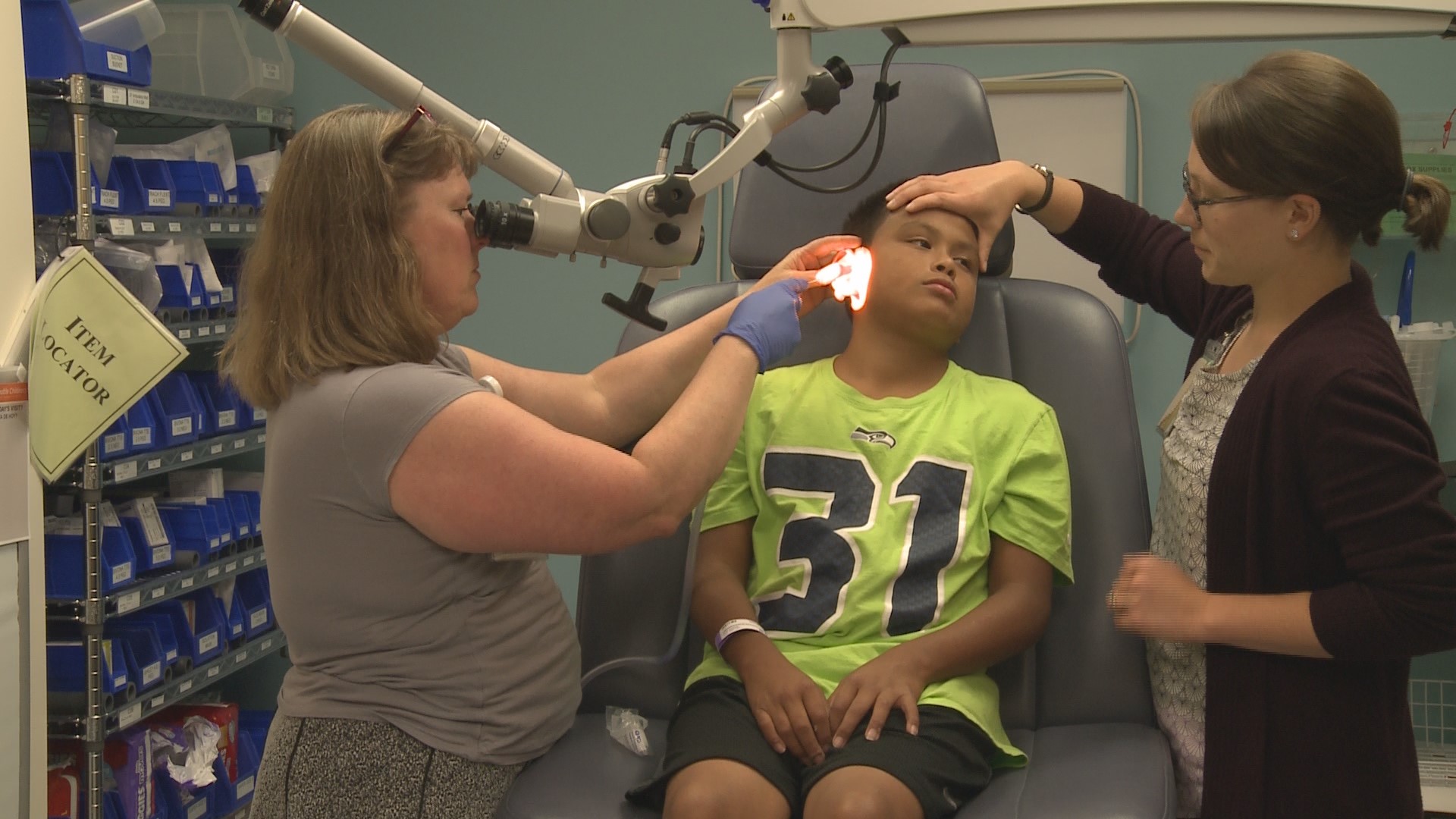Until recently the only option to fight hepatitis in pediatric patients was an injectable medicine with terrible side effects and poor results. Now a two-drug combination has been approved by the FDA for children down to the age of 12
“He became very, very ill, he was stumbling muscle fatigue just a lot of pain,” said Laura Mills, mother of a hepatitis C patient.
Mills was still shaken, remembering her son Talon Hendrickson-Zimmerman having a bad reaction to a medication called interferon. The family had hoped that would cure his hepatitis C, a virus he received from his birth mother and affects between 20,000 and 40,000 children in America.
“There is progression by this virus and injury to the liver so that we know in the pediatric age range approximately 2 percent of children will develop cirrhosis, which is the most severe form of scarring of the liver. We know that approximately 20 to 30 percent will have significant information that will lead to scarring, so in their adult life they are at risk” said Dr. Karen Murray, a hepatologist at Seattle Children's.
Murray has been caring for Hendrickson-Zimmerman since he was a baby. After the first attempt at a cure had failed, Murray enrolled Hendrickson-Zimmerman in another study that focused on the use of drugs, Sovaldi and Harvoni, to eliminate the hep C virus in children. Both drugs had been approved back in 2014 for adults with nearly 100 percent success rates.
In April the FDA officially approved the two-drug combination for children down to the age of 12. Research data from Amsterdam shows that the same drug combination is safe for children as young as 6 years old. There is ongoing research for children between 3 and 6 years old.
“Direct-acting antivirals oral medications are taken for 12 sometimes 24 weeks. They are oral once a day, and they have a very low well-tolerated side effect profile,” said Murray.
Hendrickson-Zimmerman took two pills a day and was only two weeks into his 12-week trial when his condition began to improve.
“He was amazing, just absolutely amazing, no side effects, no health issues. He went to school full-time,” said Mills.
His treatment started in January 2016, and now the hepatitis C virus is no longer detectable in Hendrickson-Zimmerman's body.
“I think we all cried that day coming home, and he said, 'Is this what it feels like to be a normal boy?'” said Dianne Rinesmith, Hendrickson-Zimmerman’s grandmother.
Hendrickson-Zimmerman's family is proud to have been a part of a study that will help other children suffering from hep C, potentially saving lives and removing the stigma of having a communicable disease.
“He's got a future," said Mills while beaming at her son. "He's got a better life. He can think about things down the road: Marriage, girlfriends, sports, without the stigma of having hep C.”


